Page 1 of 6
Leisenring's Orphan Nymphs
Posted: Fri Aug 23, 2013 11:39 am
by gingerdun
William's great swap idea came partially from conversations in Roscoe where I shared some of the information turned up in my research.
The six nymphs in Chapter X of ATWF are not, strictly speaking, Leisenring's. He was not happy about being forced to add them to the book, but Pete insisted that the Nymph Chapter needed more content. Jim and Pete selected these six patterns together, basing them partly on patterns published by Skues, but Jim shunned them. When admirers asked him to tie a set of flies from the book, he did not include them. The only nymphs that Jim did include in these sets were the Tup's and the Iron Blue Nymph, which bring the total number of nymphs in the book to eight. So we might consider the six swap nymphs to be orphans, never quite accepted by Jim Leisenring, even though they appeared in his book.
In later years Leisenring became more interested in these orphan patterns, and began exchanging flies and letters with Skues, who was their originator.
I have photographed Pete Hidy's version of the first pattern on William's list, and attach it here.
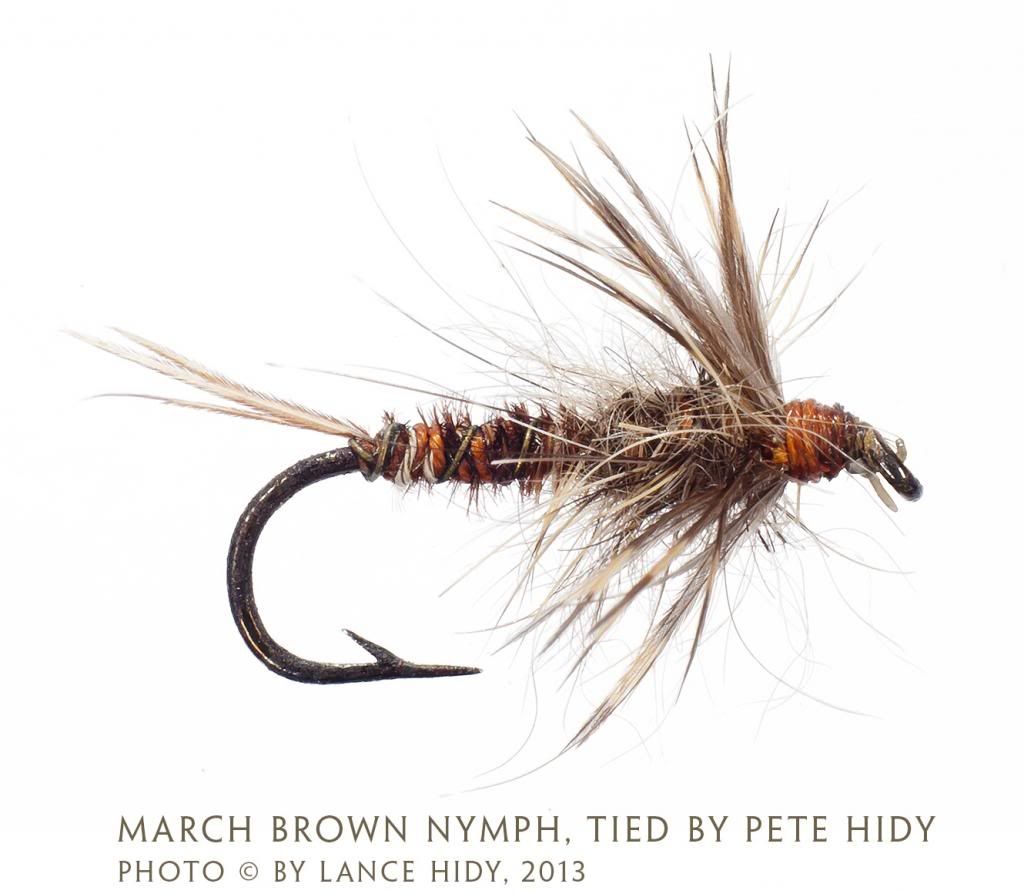
I wasn't sure whether to insert this information into the swap string, and perhaps I should have. Think of this as a parallel research post to support the swap string.
Re: Leisenring Nymphs
Posted: Fri Aug 23, 2013 11:48 am
by tie2fish
Thanks much for that shot, Lance, as I believe it will serve well to illustrate lengths, proportions, and general profile
Re: Leisenring's Orphan Nymphs
Posted: Fri Aug 23, 2013 11:55 am
by zen leecher
Lance, it almost appears that the orange thread and 3 pheasant tail fibers are spiraled together as if I was tying it that's the only way I could get the thread to show that far up in the body. Only other way is to have two ribs after the pheasant is wound, an orange thread and the wire.
Re: Leisenring's Orphan Nymphs
Posted: Fri Aug 23, 2013 12:18 pm
by William Anderson
Zen, in the pattern given for the March Brown Nymph there is a description in parenthesis (As with peacock's herl, tie in, twist with thread and wind up body, twisting together as you go.) This is actually one of my favorite body techniques as well, though I find you really don't need the wire rib. It doesn't hurt either, and adds a bit of bling and another dimension to a body that is full of contrast and texture.
I wanted to add a couple diagrams from the original volume describing the construction of the nymphs as published in The Art of the Wet Fly by Jim Leisenring and Vernon S. Hidy (1941)
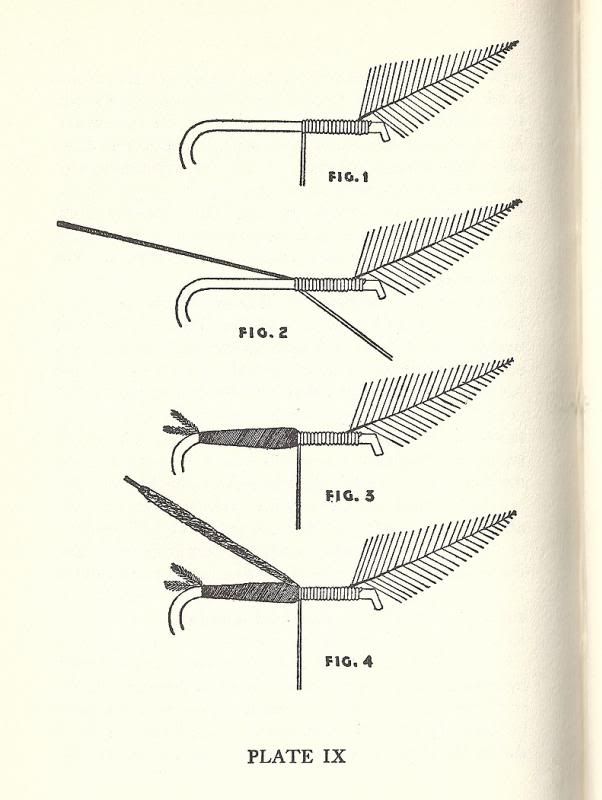
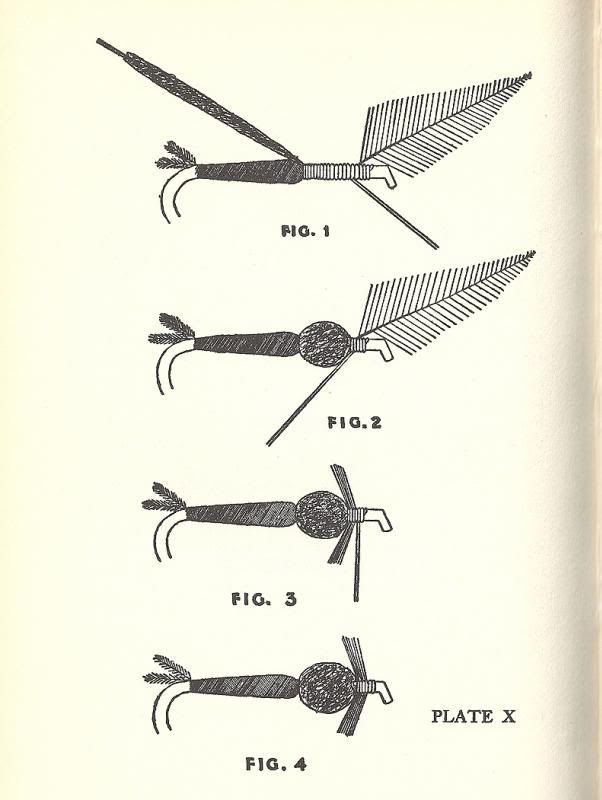
This offers some idea of the proportions in a simplified manner. Elsewhere, Lance, you have posted a couple of Skues nymphs. As I recall the proportions were very similar between Skues and the JL/PH orphan nymphs. These diagrams above certainly seem to suggest so.
Re: Leisenring's Orphan Nymphs
Posted: Fri Aug 23, 2013 12:33 pm
by zen leecher
I'll check out the tying descriptions a bit more in the copy I have. I have the 2nd edition version when it was expanded.
Re: Leisenring's Orphan Nymphs
Posted: Fri Aug 23, 2013 3:09 pm
by gingerdun
William, Thanks for posting these pages.
Zen, when I watched Jim Slattery tie this pattern, he made two ribs, one thread, and the other wire. But I think that Pete and Jim were both known to twist the thread and herl together and wrap them as a unit, which is what I think we are seeing in this photograph of the March Brown Nymph. In Pete's
Sports Illustrated Book of Wet-Fly Fishing, on page 66, he illustrates Leisenring's method of twisting three peacock herbs and the tying thread together before wrapping them around the hook shank to form the body of Leisenring's Brown Hackle.
Here are two documents about Skues' flies which may be helpful in thinking about proportions.
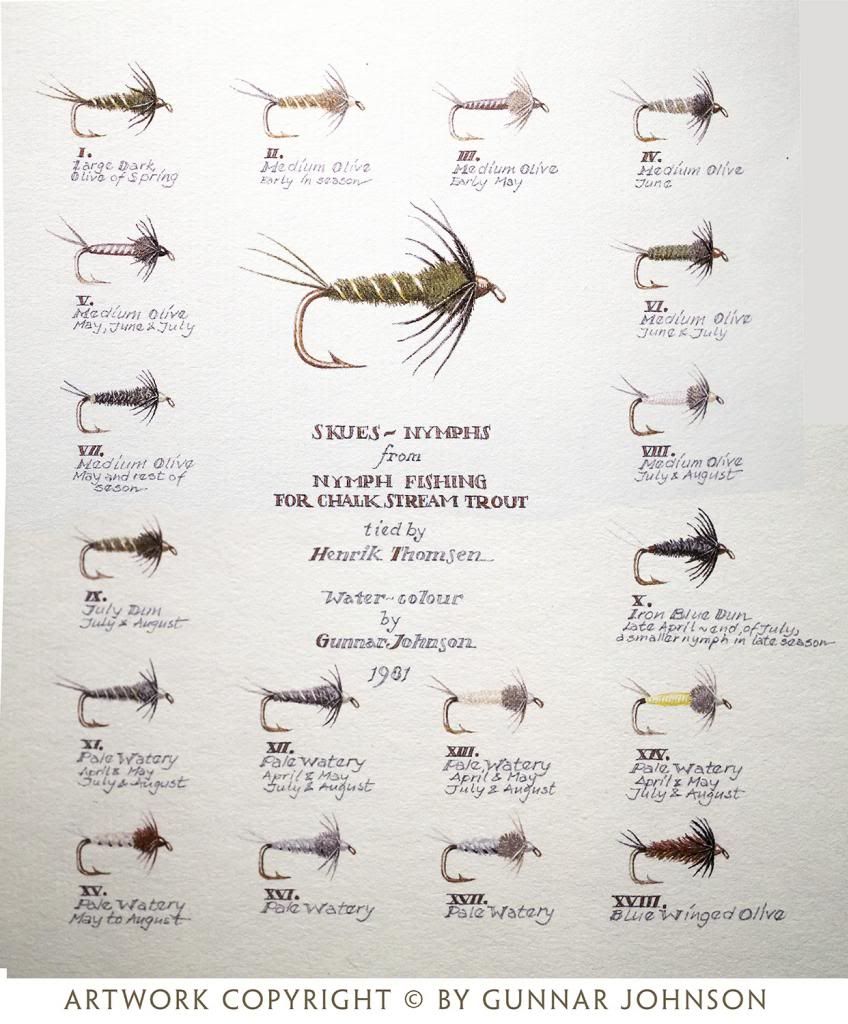
(Thanks to John Shaner for allowing me to photograph this Gunnar Johnson illustration)
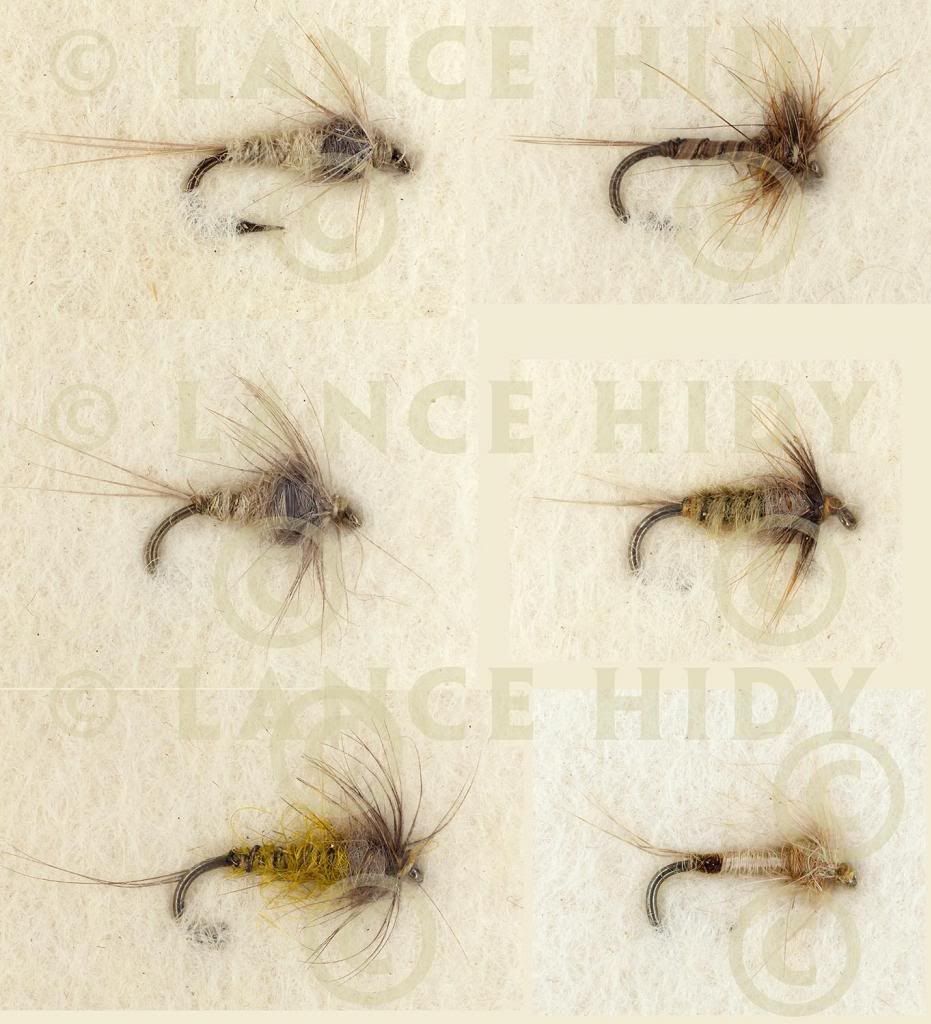
The second one shows nymphs actually tied by Skues. The photographs give a different impression from the tidier drawings. Keep in mind that wire has tarnished, and that some materials may have changed color or faded in the 70 years or so since they were tied. Sorry about the watermarks. You can still zoom in on them for a closer look. Flies available through the courtesy of private collectors.
Re: Leisenring's Orphan Nymphs
Posted: Fri Aug 23, 2013 3:28 pm
by JohnP
Frank Sawyer would wrap the pheasant tail around the wire in tying his pheasant tail nymph. There is a poor quality video on Youtube of Sawyer tying one of his nymphs.
http://youtu.be/416Os9V84n8
Re: Leisenring's Orphan Nymphs
Posted: Sat Aug 24, 2013 4:39 am
by daringduffer
Lance,
Thank you so much for this added information. I have never seen actual nymphs tied by Skues before. Most watercolours of these artificials look very artificial compared to a photo.
Pete Hidy tied beautiful flies.
dd
Re: Leisenring's Orphan Nymphs
Posted: Sat Aug 24, 2013 8:29 am
by redietz
Although probably of no interest to Leisenring, but definitely to Skues, all the patterns listed are actual British hatches. The living insect version of all of the upwings mentioned can be seen here:
http://www.first-nature.com/insects/ephemeroptera/
("July Dun" is an alternate name for the Small Dark Olive.)
I wonder if Leisenring's dis-interest may have to do with the fact that all these were hatch-matching flies for hatches he didn't have?
Courtney Williams suggest that the Half Stone was in fact a caddis imitation.
Re: Leisenring's Orphan Nymphs
Posted: Sat Aug 24, 2013 9:26 am
by Old Hat
One thing you can notice in the photo about his nymphs, that is also stated in a lot of Skues' pattern lists, is that the hackle and tails are tied short. Many tiers miss this when working on these patterns.





